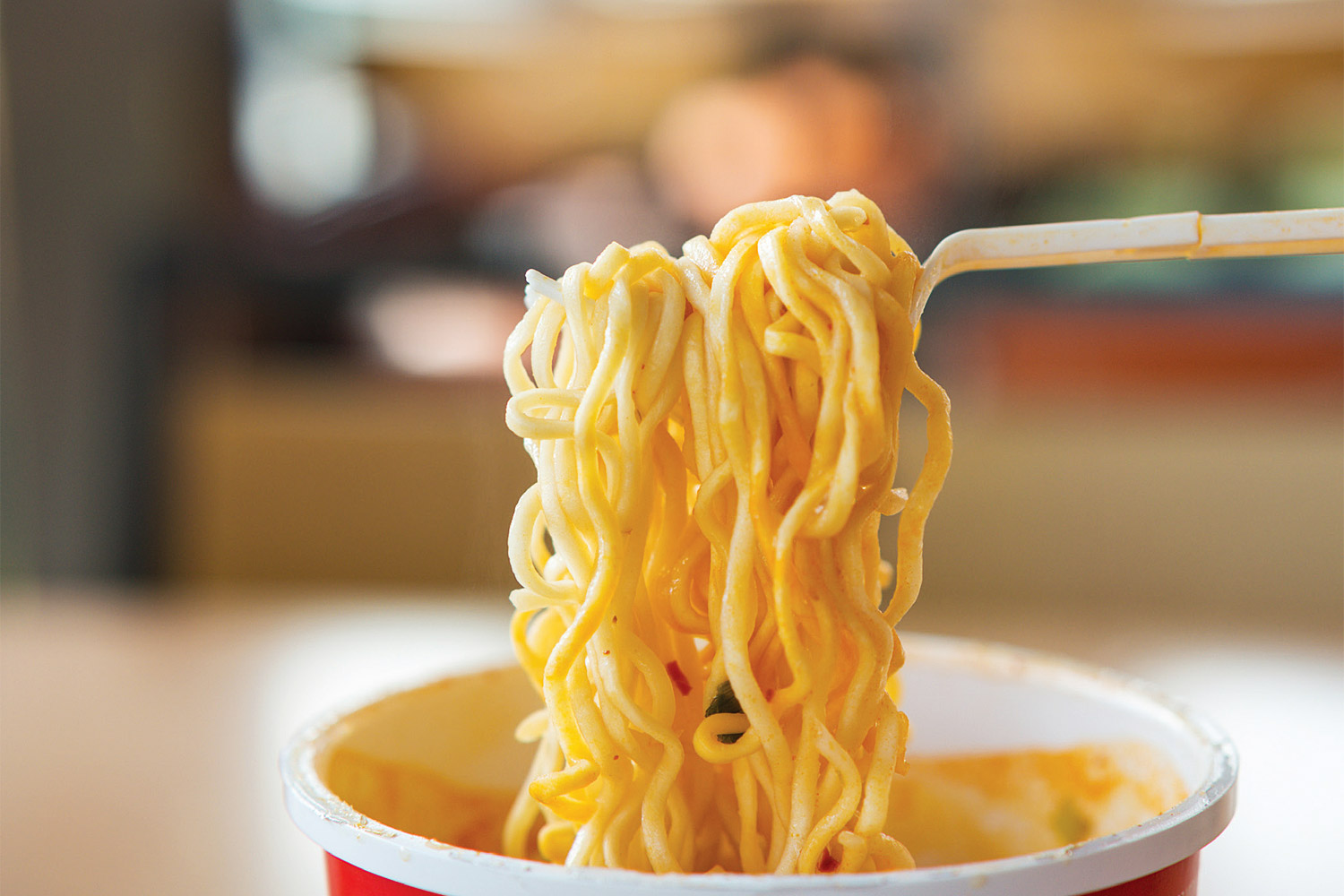
The Internal Trade Department has dismissed reports by local media that instant noodle manufacturers are set to raise prices in line with higher production costs.
Wattanasak Sur-iam, director-general of the department, said it has regular discussions with instant noodle manufacturers, and they insisted they have increased only the wholesale prices of their products or lowered trade discounts offered to retail shops, not retail prices.
According to Mr Wattanasak, manufacturers said they were abiding by promises to cooperate with the Commerce Ministry to help cap the prices of their products to alleviate consumers' hardship.
Regarding reports that fresh milk and condensed milk producers plan to raise their prices in March or April due to a sharp rise in production costs, especially tinplate, he said the department needed to consider their production cost structures to see whether their costs have really increased, along with the rate at which their costs have increased.
Mr Wattanasak said any manufacturers who wanted to raise their selling prices due to higher production costs were required to submit their request to the department, and pledged that it would consider them on a case-by-case basis.
He also insisted that the ministry has yet to allow any manufacturers to raise their prices, saying that consumers would be hardest hit if prices were allowed to rise.
In a related development, Mr Wattanasak said the department has also kept a close watch on the impact of the Russia-Ukraine war on fertilisers, and is yet to approve the raising of domestic fertiliser prices.
The Thai Fertilizer and Agricultural Supplies Association yesterday submitted a letter to the commerce minister, asking him to review the price-fixing policy and allow entrepreneurs to raise fertiliser prices in line with higher production costs.
Current domestic fertiliser prices have risen more than 100% from the same period of last year, driven by rising production costs.
The price of muriate of potash has risen to US$625 per tonne, from $550 per tonne in the same period last year; the cost of diammonium phosphate has risen to $877 per tonne, up from $600 per tonne; and the price of ammonium sulphate has risen to $390 a tonne, up from $220 a tonne year-on-year.
Plengsakdi Prakaspesat, president of the Thai Fertilizer and Agricultural Supplies Association, said on Monday that local fertiliser traders and producers have faced rising production costs since the end of last year, but have been unable to raise their prices accordingly because the government has fixed domestic fertiliser prices and asked for cooperation from producers and traders to maintain their sales prices to alleviate the impact on farmers.
The domestic fertiliser market has reached a critical point after Russia, the world's biggest exporter of fertilisers, last week recommended its fertiliser producers temporarily halt exports. This is a sign the sanctions, imposed on Russia after its invasion of Ukraine, could have a global impact, according to Mr Plengsakdi.
Russia is a major producer of potash, phosphate, and nitrogen-containing fertilisers, which are major crop and soil nutrients. It produces more than 50 million tonnes of fertiliser a year, around 25% of the world's production.
Thailand imported 500,000 tonnes of fertiliser from Russia last year, using a port in Ukraine.
Annually, Thailand imports a total of 5 million tonnes of fertiliser, mainly from the Middle East, Belarus, Russia, Canada, China and Europe.







